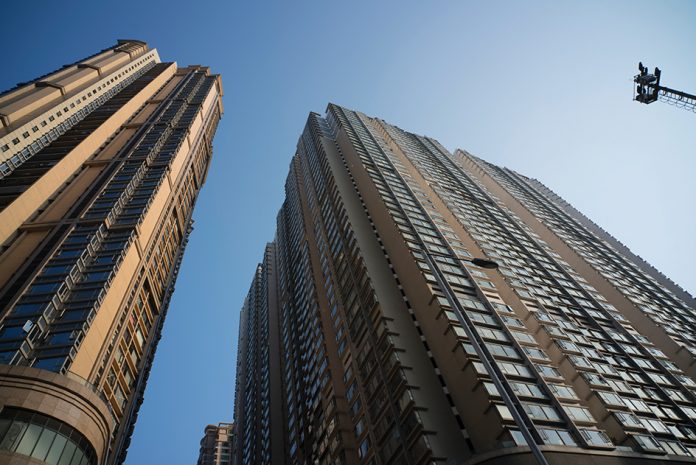Market insiders expect there will only be a price correction of up to 10 percent in the home property market in light of the current epidemic, while the transaction volume will continue to be dismal.
Turning into March after the Lunar New Year, it’s supposed to be a traditional busy season for the property market, when potential homebuyers go for flat viewing across the city before making a decision. However, the outbreak of the novel coronavirus (COVID-19) has brought the market to a standstill, with almost close to zero transactions and a price correction of up to 10 percent.
The home rental market has fared slightly better in the face of the public health alert, supported by the government’s initiative that has forced some non-resident workers staying in Mainland China to relocate to the city temporarily.
Prior to the illness, which has affected over 77,000 in the Mainland, with 10 confirmed cases in Macau as of late February, the Macau property market has already lost some momentum, weighed down by the slowing Mainland economy, the trade war between China and the United States and other macroeconomic factors.
The latest data from the Financial Services Bureau show the number of home transactions in 2019 totalled 7,745, plunging 26.8 percent from the previous year. The 2019 sales volume was also the lowest since 2015, when only close to 5,750 homes were sold. Home price last year also averaged MOP109,065 per square metre, down by just 1.96 percent year-on-year, the government figures said.
The 2020 prospects were already lacklustre, with analysts predicting that sale volume could further shrink while the price stays flat. But the market sentiment has started to deteriorate since the city reported the first COVID-19 case. According to figures compiled by Centaline (Macau) Property Agency Ltd, the city only recorded seven home transactions in February so far, down by nearly 90 percent from 66 transactions a year ago.
‘Frozen’ market
The local property agency reasoned: “Since the first confirmed case was reported in Macau in late January, the sentiment has quickly worsened with a 70-percent drop in flat viewing in the Chinese New Year period this year compared with last year.” The start of the Chinese New Year holiday fell on 25th January this year, compared with 5th February last year.
The home market has “completely frozen” after the Lunar New Year, with just a few small-value transactions recorded in the second-hand market, Centaline said. “Most developers have temporarily closed the show flats in the meanwhile, leading to no sales recorded in the first hand market,” the agency noted.
– Nearly 90%
Decline in number of home transactions compiled by Centaline Macau

“Homeowners in Macau in general have sound financial fundamentals so many of them have made no adjustments in asking prices during this public health alert — only a few owners have lowered the price by about 5 percent,” Centaline said. “Both buyers and investors now adopt a wait-and-see approach before there are any clear signs of when the epidemic will end.”
COVID-19, which is believed to have originated in the Chinese central city of Wuhan, belongs to the same coronavirus family of severe acute respiratory syndrome (SARS)-related coronavirus, which hit the southern China region, particularly nearby Hong Kong and Guangdong province, 17 years ago.
The Macau home market took a lashing in the first half of 2003, when the epidemic dampened the economy in the two special administrative regions. Official data show the number of home transactions in the gambling enclave totalled 4,776 in the January-June period of 2003, down by 17.1 percent from a year prior, before recording a rise of over 20 percent in the second half of the same year.
No significant correction
Talking about the overall outlook for the residential market, Roy Ho Siu Hang, director of Centaline Macau, acknowledged that COVID-19 had dampened the market, but he remains upbeat about the prospects. “Looking back at the SARS period, which lasted for about five months, the home market was able to recover quickly after the end of the epidemic at the time,” he said.
Lily Hong, sales director of Midland Realty (Macau) Ltd, also expects there is limited room for downward adjustment — about 5-10 percent — in home price this time, due to the robust financial fundamentals of residences here.
“Most residential properties here are now held by Macau residents with abundant resources, so most owners do not feel the rush to cut down any price,” Ms. Hong reasoned.
“Most residential properties here are now held by Macau residents with abundant resources, so most owners do not feel the rush to cut down any price” – Lily Hong, sales director of Midland Macau

Given an array of measures rolled out and planned by the government to support the economy, including a new mortgage relief policy, she added: “There will not be any significant home price correction if the epidemic doesn’t last for a long time. But if it drags on for months, it’s difficult to say now how profound the impact will be.”
With the encouragement of the Macau government, the Macau Association of Banks announced last month that all lenders here would allow local mortgage clients — including both individual customers and corporate customers — to file an application for the suspension of principal repayment of loans for six months, meaning they only have to pay for the interest rates for half a year.
Restrictions
The home rental market has also been embroiled in the crisis of the virus outbreak, but there are some signs of activity after the government imposed fresh restrictions for non-resident workers coming from the Mainland.
In a bid to fight against COVID-19 by minimising the flow of people crossing the border, the administration unveiled last month that all non-resident workers who hope to enter Macau but have visited the Mainland in the past 14 days prior to their entry, have to undergo medical observation for two weeks in nearby Zhuhai first. The government has urged all local businesses, if they have the financial capacity, to provide temporary accommodation for the non-resident workers in Macau.
Officials do not have the exact figure of how many non-resident workers now live across the border, but the Public Security Police have estimated there was an average of 35,000 non-resident employees that work in Macau, travelling to and fro between the city and nearby Zhuhai daily.
According to figures from the Labour Affairs Bureau, the government has issued permits for 118,667 Mainland Chinese employees to work in Macau as of January this year, accounting for 61.3 percent of all non-resident workers in the gambling enclave.
Like home transactions, Ms. Hong from Midland Realty noted the residential rental market has been quiet since the epidemic outbreak. “After the new initiative unveiled by the administration on non-resident workers, we have indeed received more enquiries from companies looking for temporary housing for their workers,” she said.
“But not many enquiries have led to successful leases due to the limited supply in the market. The standards of the flats the bosses are looking for are different from what normal tenants request,” she said, adding there is relatively more supply in the northern district and Areia Preta for non-resident workers than other parts of the territory.

Short-term lease
“Despite the latest government initiative, the number of rental leases recorded in the market was only about 20-30 percent of the volume before the virus outbreak,” she noted. “The rental value, on the other hand, has been pretty stable.”
Mr. Ho from Centaline Macau, also noted there is limited residential supply in the market for the temporary accommodation of non-resident workers. “Not many homeowners want to bear the risk for a short-term rental lease — lasting for a few months in this case — as the rental regulations mandate any rental lease must not be shorter than three years,” he reasoned.
“This means if the tenants don’t move out after a few months, in contrast with the previous consensus, there are limited solutions for the homeowners [to kick them out],” he added.
“Not many homeowners want to bear the risk for a short-term rental lease — lasting for a few months in this case — as the rental regulations mandate any rental lease must not be shorter than three years” – Roy Ho, director of Centaline Macau
According to the Labour Affairs Bureau, the administration has urged all of the six gaming operators in the territory to offer temporary lodging for their non-resident workers that live outside of Macau; an initiative for which the casino operators have shown support.
The bureau also noted in a statement that with the coordination among the Macau Chamber of Commerce, the Association of Chinese Employment Agencies (Macau) and the Macau Hoteliers & Innkeepers Association, about 3,000 Mainland Chinese workers that live outside of Macau from over 10 Chinese companies here were offered temporary lodging in local hotels.
“[The bureau] hopes more hotels could provide their guestrooms [for the temporary accommodation of workers] to shoulder the social responsibilities in this difficult time period,” the statement read.
























